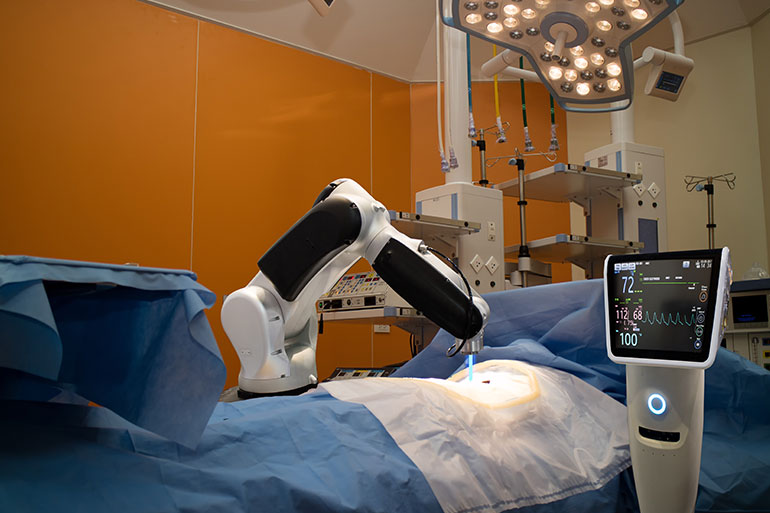
AI’s Latest Leap: Revolutionizing Healthcare DiagnosticsAI’s Latest Leap: Revolutionizing Healthcare Diagnostics Artificial intelligence (AI) is rapidly transforming the healthcare industry, with its latest advancements focusing on enhancing diagnostic capabilities. AI algorithms are now being trained on vast datasets of medical images, electronic health records, and other data to identify patterns and anomalies that may not be apparent to human healthcare professionals. Improved Accuracy and Early Detection: AI algorithms can analyze complex medical images, such as MRI and CT scans, with unparalleled precision. They can detect subtle changes or abnormalities that may be overlooked by the human eye. This enhanced accuracy enables earlier detection of diseases, leading to more timely interventions and improved patient outcomes. Personalized Medicine: AI can help personalize medicine by tailoring diagnostic tests and treatments to individual patients. By analyzing a patient’s medical history, genetic profile, and lifestyle factors, AI algorithms can identify the most appropriate diagnostic tests and provide personalized treatment recommendations. This approach optimizes care, reduces unnecessary interventions, and improves overall patient satisfaction. Remote Diagnostics: AI-powered diagnostics can be performed remotely, making healthcare more accessible for patients living in remote areas or with mobility issues. Telemedicine platforms equipped with AI algorithms can analyze patient data and provide diagnostic insights, enabling physicians to make informed decisions from afar. Time and Resource Optimization: AI algorithms can process vast amounts of data quickly and efficiently. This automation frees up healthcare professionals’ time, allowing them to focus on more complex tasks and provide better patient care. Additionally, AI can reduce the need for repeat testing, saving time and resources for both patients and healthcare systems. Examples of AI in Healthcare Diagnostics: * AI-assisted radiology: Algorithms analyze medical images to detect abnormalities and provide diagnostic recommendations. * Skin cancer detection: AI algorithms identify suspicious skin lesions with high accuracy, enabling early detection and treatment. * Automated eye exams: AI can detect eye diseases such as glaucoma and diabetic retinopathy by analyzing images of the retina. * Predictive analytics: AI algorithms use medical records to identify patients at risk of developing certain diseases, allowing for preventive measures to be taken. Conclusion: AI’s latest advancements in healthcare diagnostics are revolutionizing the way diseases are detected and treated. By improving accuracy, enabling early detection, providing personalized care, and optimizing time and resources, AI is empowering healthcare professionals to deliver better patient outcomes and enhance the overall healthcare experience. As AI technology continues to evolve, its transformative impact on healthcare diagnostics will only continue to grow, shaping the future of medicine for the better.
Posted inNews